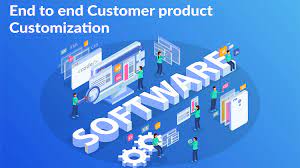The Impact of Software in Today’s World
Software plays a crucial role in almost every aspect of our lives today. From the applications on our smartphones to the complex systems running behind the scenes of businesses and industries, software has become indispensable. Let’s explore the various ways in which software influences and shapes our world:
Enhancing Efficiency
Software automates tasks, streamlines processes, and eliminates manual errors, leading to increased efficiency in both personal and professional settings. From project management tools to accounting software, organizations rely on software to optimize their operations.
Enabling Connectivity
The rise of communication and social media platforms has been made possible by software development. These tools have revolutionized how we connect with others, share information, and collaborate across geographical boundaries.
Driving Innovation
Software fuels innovation by providing a platform for developers to create new solutions to existing problems. Whether it’s artificial intelligence, virtual reality, or blockchain technology, software is at the core of groundbreaking advancements in various industries.
Improving User Experience
User-centric design principles are integrated into software development to ensure a seamless and intuitive user experience. Applications that are easy to navigate and visually appealing are more likely to attract and retain users.
Enhancing Decision-Making
Data analytics software empowers businesses to make informed decisions based on real-time insights and trends. By analyzing large datasets efficiently, organizations can identify opportunities for growth and address potential challenges proactively.
Ensuring Security
Cybersecurity software plays a critical role in protecting sensitive information from cyber threats and attacks. As digital threats evolve, developers continuously work on enhancing security measures to safeguard data integrity and privacy.
Conclusion
In conclusion, the impact of software on our society is profound and far-reaching. As technology continues to advance, the role of software will only become more significant in shaping our future. It is essential for individuals and organizations alike to embrace technological innovations responsibly and harness the power of software for positive change.
Understanding Software: Key FAQs on Types, Selection, Trends, Security, and Business Benefits
- What is software and how does it work?
- What are the different types of software?
- How can I choose the right software for my needs?
- What are the latest trends in software development?
- How can I protect my data from software vulnerabilities?
- What are the benefits of using customized software for businesses?
What is software and how does it work?
Software is a set of instructions and data that tells a computer how to perform specific tasks or functions. It encompasses programs, applications, and operating systems that enable devices to execute desired actions. Software works by being installed on a computer or device, where it is processed by the hardware to carry out the programmed functions. Through coding and programming languages, developers create software to meet various needs, from simple applications to complex systems. The interaction between software and hardware allows users to interact with technology effectively, making tasks more efficient and enabling a wide range of functionalities across different platforms.
What are the different types of software?
There are various types of software that serve different purposes and cater to diverse needs. Some common categories of software include system software, which includes operating systems like Windows and macOS that manage hardware resources; application software, such as word processors, web browsers, and graphic design programs used for specific tasks; programming software for developers to create applications; and utility software like antivirus programs and disk cleaners that help optimize system performance. Each type of software plays a unique role in enhancing user experiences, improving efficiency, and enabling the functionality of devices and systems.
How can I choose the right software for my needs?
When selecting the right software for your specific needs, it is essential to start by clearly defining your requirements and objectives. Consider factors such as the features and functionalities you require, compatibility with existing systems, scalability for future growth, user-friendliness, and budget constraints. Research different software options, read reviews, and seek recommendations from industry peers to gain insights into their performance and reliability. Additionally, take advantage of free trials or demos to test the software’s usability and suitability before making a final decision. By conducting thorough research and evaluation based on your unique needs, you can choose software that aligns best with your requirements and maximizes its benefits for your organization.
What are the latest trends in software development?
The latest trends in software development encompass a wide range of innovative technologies and methodologies that are shaping the future of the industry. From the adoption of artificial intelligence and machine learning to the rise of low-code/no-code platforms, software developers are exploring new ways to streamline processes and enhance user experiences. Agile and DevOps practices continue to gain momentum, enabling teams to deliver high-quality software at a faster pace. Additionally, cloud computing, containerization, and microservices architecture are transforming how applications are deployed and managed. Keeping abreast of these trends is essential for staying competitive in today’s dynamic software development landscape.
How can I protect my data from software vulnerabilities?
To protect your data from software vulnerabilities, it is essential to stay vigilant and proactive in implementing security measures. Start by keeping all your software up to date with the latest patches and updates released by the developers. Regularly monitor for security advisories and apply necessary fixes promptly. Utilize reputable antivirus and antimalware software to detect and prevent malicious threats. Implement strong password practices, such as using unique passwords for each account and enabling two-factor authentication where possible. Regularly back up your data to secure locations to mitigate the impact of potential breaches. Lastly, educate yourself and your team on best practices for data security to minimize the risk of falling victim to software vulnerabilities.
What are the benefits of using customized software for businesses?
Customized software offers a range of benefits for businesses seeking tailored solutions to meet their specific needs. One key advantage is increased efficiency, as bespoke software can streamline processes and automate tasks, leading to time and cost savings. Additionally, customized software allows businesses to have greater control over functionality and features, ensuring that the system aligns closely with their unique requirements. Improved scalability and flexibility are also notable benefits, as tailored software can easily adapt to evolving business needs and growth. Overall, investing in customized software can enhance productivity, optimize operations, and provide a competitive edge in today’s dynamic business landscape.




